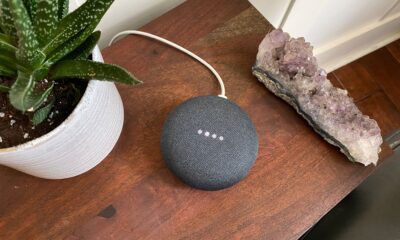Technology
Perplexity AI’s Comet Browser Promises to Transform Workplace Efficiency

The launch of Perplexity AI’s Comet browser has sparked conversations about the future of work and the role of artificial intelligence in enhancing productivity. CEO Aravind Srinivas claims that Comet can automate routine tasks to such an extent that businesses may not need to hire additional staff. This capability positions Comet as a potential disruptor in the web browsing sector, challenging the long-standing dominance of Google.
Comet, which was officially launched in July 2025, is designed to function as a “true personal assistant,” going beyond the capabilities of traditional web browsers. It integrates into daily workflows, managing tasks such as research, email drafting, scheduling, and even shopping. By understanding user intent and context, Comet aims to streamline operations and boost overall productivity.
Initially, Comet was available only to subscribers of Perplexity Max, but due to rising demand, the browser has recently been made accessible to all users, including those on the free tier. This strategic move reflects Perplexity’s commitment to democratizing advanced AI tools for a wider audience.
The ambitious claims surrounding Comet have captured significant attention. In a recent interview with CNBC, Srinivas suggested that using Comet could lead to increased productivity equivalent to $10,000 per year for each user. He stated, “Instead of hiring one more person on your team, you could just use Comet to supplement all the work that you’re doing.” This assertion implies that routine tasks, which often consume valuable time, can be efficiently handled by AI, allowing employees to focus on more strategic elements of their roles.
Srinivas further argued that a mere 20% increase in productivity within the “human digital knowledge work” sector could potentially add nearly $5 trillion to global GDP. This data-driven perspective illustrates the transformative impact AI tools like Comet could have on the economy.
While the capabilities of Comet are impressive, it is essential to recognize its limitations. Despite its proficiency in automating repetitive tasks, the browser lacks qualities such as emotional intelligence, creativity, and complex decision-making—traits that are inherently human. As such, AI should not be viewed as a replacement for human workers but rather as a complement that enhances their capabilities.
Implementing AI tools like Comet necessitates human oversight to address ethical concerns, ensure data privacy, and uphold organizational values. This collaborative relationship between humans and AI is vital for achieving optimal outcomes in productivity.
In summary, while Perplexity’s Comet browser represents a significant advancement in AI innovation, it is not poised to replace the human workforce entirely. Instead, it serves as a powerful tool that, when used appropriately, can reduce human effort and drive efficiency. The future seems promising if the synergy between humans and AI remains collaborative and mutually beneficial, allowing each to leverage their unique strengths to reach new heights in productivity.
For those interested in exploring what Comet has to offer, the browser is now available for free to all users, providing a unique opportunity to experience its capabilities firsthand.
-

 Technology5 months ago
Technology5 months agoDiscover the Top 10 Calorie Counting Apps of 2025
-

 Health3 months ago
Health3 months agoBella Hadid Shares Health Update After Treatment for Lyme Disease
-

 Technology1 week ago
Technology1 week agoOpenAI to Implement Age Verification for ChatGPT by December 2025
-

 Health3 months ago
Health3 months agoErin Bates Shares Recovery Update Following Sepsis Complications
-

 Technology4 months ago
Technology4 months agoDiscover How to Reverse Image Search Using ChatGPT Effortlessly
-

 Technology3 months ago
Technology3 months agoElectric Moto Influencer Surronster Arrested in Tijuana
-

 Technology1 month ago
Technology1 month agoDiscover 2025’s Top GPUs for Exceptional 4K Gaming Performance
-

 Technology5 months ago
Technology5 months agoMeta Initiates $60B AI Data Center Expansion, Starting in Ohio
-

 Health3 months ago
Health3 months agoAnalysts Project Stronger Growth for Apple’s iPhone 17 Lineup
-

 Technology5 months ago
Technology5 months agoRecovering a Suspended TikTok Account: A Step-by-Step Guide
-

 Health5 months ago
Health5 months agoTested: Rab Firewall Mountain Jacket Survives Harsh Conditions
-

 Lifestyle5 months ago
Lifestyle5 months agoBelton Family Reunites After Daughter Survives Hill Country Floods


















